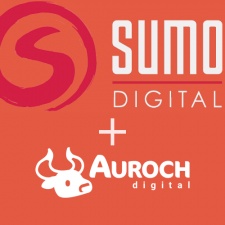It’s near-impossible to go a week without a company either being acquired, sold or split apart in the games industry.
The conversation and decision-making that leads to an acquisition being made is one that doesn’t take place simply overnight.
It’s one that requires numerous pieces to be placed accordingly before the final go-ahead can be made. All that’s normally shared will be the announcement, none of the inner workings.
So, to shed a little light on what goes on behind the scenes, PocketGamer.biz will be speaking to a variety of companies under our semi-regular Done Deal series, which will look into strategy, long-term goals and the ongoing hurdles of making an acquisition.
This time, we discussed Sumo Group’s acquisition of UK-based development studio Auroch Digital for $8.3 million with Sumo commercial director Dean Trotman and Auroch Digital studio director Tomas Rawlings.
To start with, can you explain where the idea for the acquisition came from?
Trotman: A mutual friend made the original connection that resulted in positive exploratory conversations.
It was clear from the very outset that we shared the same vision and values.
What were the main goals of this acquisition and how long did the acquisition take to go through?
Trotman: Complementary to Sumo’s growth strategy, the main goal in this instance was to partner with a like-minded and talented development studio. Auroch’s continued focus on the creation of original IP and its location within a strong UK development hub is also highly desirable.
The main goal in this instance was to partner with a like-minded and talented development studio
Dean Trotman
The acquisition took around six months to complete from those initial exploratory conversations.
It was a collaborative and smooth process handled by Sumo’s dedicated and experienced mergers and acquisitions team, involving the creation of a joint business plan, and taking into consideration Auroch’s goals along with the potential for new opportunities working with Secret Mode and the wider Sumo family.
How has this acquisition benefitted your company going forward? Perhaps new hires, resources or significant growth?
Trotman: All the above… the benefits are mutual for all parties.
Rawlings: We’ve gained a huge amount. We have long-term stability now which means we can invest in new projects, staff and more.
It means we can start to think much longer-term in terms of, for example, training up new hires, knowing that we’ve got projects happening in the future and knowing that as those new people rise in skill we have the challenges we know they will enjoy taking on.
It means we can invest in new IP – in both a creative and strategic manner, giving us time to find the unique things in a project and really make them shine. It also gives us access to a huge team of professionals in all areas; tech, HR, legal, business, creative – the resources Sumo has built are pretty astounding.
Did you encounter any major hurdles during the process and if so, how were they addressed?
Trotman: As you might expect, we encountered lots of little bumps along the way which were addressed as and when they arose.
The key driver and overarching theme was that both parties felt this was the right deal and worked transparently and in good faith to make it happen.
How has the company’s strategy changed under new ownership?
Rawlings: Apart from the more long-term stability mentioned, we are basically doing the things we were before, but more of it and with more support.
Over time, working with Sumo we do expect to evolve this as the market shifts. But again, we’re in a great position of having all these people with deep knowledge and experience to bounce ideas off!
We’re in a great position of having all these people with deep knowledge and experience to bounce ideas off
Tomas Rawlings
Was there anything that has happened since the acquisition that you would change?
Trotman: Absolutely not! We do joke that Sumo’s proven and successful 100-day integration plan seems like it’s held over the course of one month which can be a tad rock-and-roll at times (as per all ‘inductions’)! Tomas, Nina and the team are welcome additions to the Sumo family and have settled in fantastically.
Are mergers and acquisitions a good thing for the games industry as a whole?
Trotman: It’s down to each studio and person, but for Sumo and Auroch it was a good thing.
Sumo enjoys an active acquisition pipeline of studios to whom we believe we can add significant value and Auroch was at the limit of what they could achieve without more resources and support.
When it’s likeminded for all the reasons above, it’s a very positive games industry force.
What advice would you give to companies that are either looking to make an acquisition or be acquired? What are the positives for both parties?
Rawlings: Make sure you have good legal and financial support going in. We had great support from Sheridans (legal) and Bishop Fleming (corporate finance). Make sure you’ve got all the paperwork in order, as the due diligence process is quite intense but important.
But the most key is good communication and always operating in good faith; sure you’re trying to get the best deal and so is the other party, but if you make the arguments why a deal should be X and not Y in an honest and clear manner, that goes a long way.

